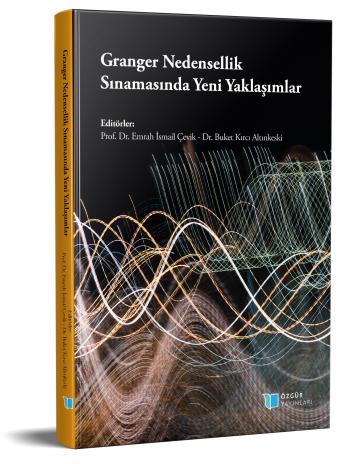
Türkiye'de Elektrik Tüketimi ve Büyüme Arasındaki Nedensellik İlişkisi: MS-Granger Yaklaşımı
Şu kitabın bölümü:
Çevik,
E.
İ.
&
Kırcı Altınkeski,
B.
(eds.)
2023.
Granger Nedensellik Sınamasında Yeni Yaklaşımlar.
Özet
Bu çalışmada Granger nedensellik sınamasında yeni yaklaşımlardan biri olan Markov-Switching VAR modele dayanan rejimlere bağlı Granger (MS-Granger) yöntemini kullanarak elektrik tüketimi ile ekonomik büyüme arasındaki nedensellik ilişkisinin araştırılmıştır. Analizlerde kullanılan değişkenler doğrusal olmayıp birinci farklarında durağan çıkmışlardır. MS-Granger metodu rejimlere bağlı olarak hesaplandığından öncelikle Markov-Switching VAR (MS-VAR) modeli tahmin edilmiştir. Tahmin edilen MS-VAR modeli 2 rejimli olup gecikme uzunluğu 1 olarak tespit edilmiştir. Modele göre elde edilen rejimler düşük büyüme dönemi (1. rejim) ve yüksek büyüme dönemi (2. rejim) olarak adlandırılmıştır. Bu rejimler yardımıyla MS-Granger nedensellik sınaması tahmin edilmiştir. Elde edilen sonuçlara göre yüksek büyüme döneminde elektrik tüketiminden ekonomik büyümeye doğru tek yönlü nedensellik ilişkisi anlamlı bulunmuştur. Bu sonuç büyüme hipotezini doğrulamaktadır. Bu bağlamda elektrik tüketimi, ekonomik büyümeye katkıda bulunmaktadır. Dolayısıyla korumacı politikaların (elektrik enerjisinin kullanımının kısıtlanması ve/ veya enerji tasarrufuna gidilmesi gibi) uygulanması ekonomik büyümeyi olumsuz yönde etkileyecektir. Ekonomik büyümeyi desteklemek için elektrik tüketimini arttırmaya yönelik teşviklerde bulunmak gerekmektedir.

